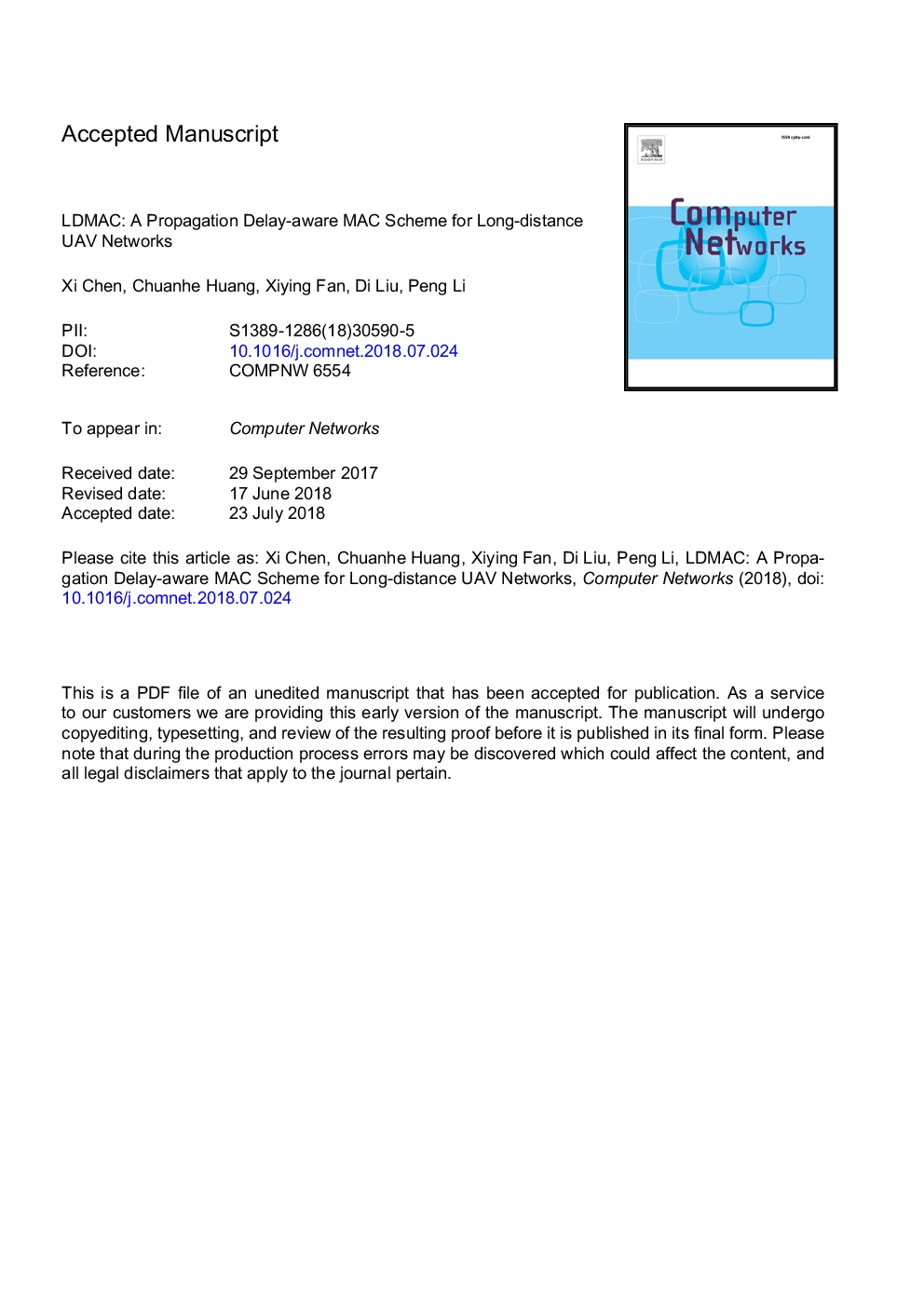| Article ID | Journal | Published Year | Pages | File Type |
|---|---|---|---|---|
| 6882569 | Computer Networks | 2018 | 42 Pages |
Abstract
Unmanned aerial vehicles (UAVs) are gaining increasing importance in military and civilian applications. A challenging problem is the efficient communication between multiple UAVs and terrestrial base station (BS), where a wireless link has to cover hundreds of miles. These long-distance wireless networks suffer from heterogeneous and varying propagation delays, making conventional medium access control (MAC) protocols inappropriate. In this paper, a propagation delay-aware access scheme, LDMAC, is designed for long-distance UAV networks. It is a joint design of random access and collision-free time slot allocation. UAVs contend for time slots based on improved Irregular Repetition Slotted Aloha (IRSA), and subsequently the BS makes a collision-free, fair and optimized time slot allocation with temporal reuse. Both of the processes take full advantage of propagation delay to efficiently improve system throughput. Simulation results show that LDMAC achieves up to 30% improvement over IRSA with respect to successful decoding rate (SDR), and outperforms competing protocols that include IRSA and dynamic time division multiple access (D-TDMA) in terms of throughput in mobile wireless networks.
Related Topics
Physical Sciences and Engineering
Computer Science
Computer Networks and Communications
Authors
Xi Chen, Chuanhe Huang, Xiying Fan, Di Liu, Peng Li,
